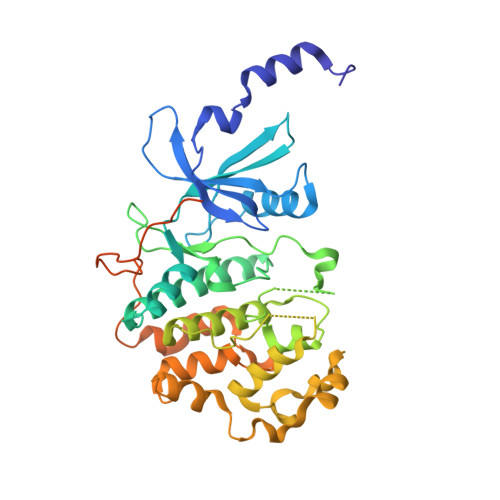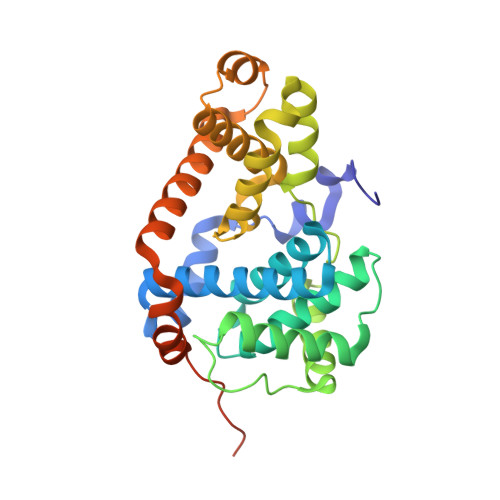Mediator Kinase Inhibition Further Activates Super-Enhancer- Associated Genes in Aml
Pelish, H.E., Liau, B.B., Nitulescu, I.I., Tangpeerachaikul, A., Poss, Z.C., Da Silva, D.H., Caruso, B.T., Arefolov, A., Fadeyi, O., Christie, A.L., Du, K., Banka, D., Schneider, E.V., Jestel, A., Zou, G., Si, C., Ebmeier, C.C., Bronson, R.T., Krivtsov, A.V., Myers, A.G., Kohl, N.E., Kung, A.L., Armstrong, S.A., Lemieux, M.E., Taatjes, D.J., Shair, M.D.(2015) Nature 526: 273
- PubMed: 26416749
- DOI: https://doi.org/10.1038/nature14904
- Primary Citation of Related Structures:
4CRL - PubMed Abstract:
Super-enhancers (SEs), which are composed of large clusters of enhancers densely loaded with the Mediator complex, transcription factors and chromatin regulators, drive high expression of genes implicated in cell identity and disease, such as lineage-controlling transcription factors and oncogenes. BRD4 and CDK7 are positive regulators of SE-mediated transcription. By contrast, negative regulators of SE-associated genes have not been well described. Here we show that the Mediator-associated kinases cyclin-dependent kinase 8 (CDK8) and CDK19 restrain increased activation of key SE-associated genes in acute myeloid leukaemia (AML) cells. We report that the natural product cortistatin A (CA) selectively inhibits Mediator kinases, has anti-leukaemic activity in vitro and in vivo, and disproportionately induces upregulation of SE-associated genes in CA-sensitive AML cell lines but not in CA-insensitive cell lines. In AML cells, CA upregulated SE-associated genes with tumour suppressor and lineage-controlling functions, including the transcription factors CEBPA, IRF8, IRF1 and ETV6 (refs 6-8). The BRD4 inhibitor I-BET151 downregulated these SE-associated genes, yet also has anti-leukaemic activity. Individually increasing or decreasing the expression of these transcription factors suppressed AML cell growth, providing evidence that leukaemia cells are sensitive to the dosage of SE-associated genes. Our results demonstrate that Mediator kinases can negatively regulate SE-associated gene expression in specific cell types, and can be pharmacologically targeted as a therapeutic approach to AML.
- Department of Chemistry and Chemical Biology, Harvard University, Cambridge, MA 02138, USA.
Organizational Affiliation:



















